Abraham Maslow (1908 – 1970) was an American psychologist who is best known for creating his Hierarchy of Needs, a theory of psychological health predicated on fulfilling innate human needs in priority, culminating in what he called creative “self-actualization.”
He also popularized the notion of peak experiences by focusing his research on mentally healthy people who were able to self-actualize (essentially be the best that they could be by reaching their full potential). Many of these people reported having transcendental experiences that were fundamental in shaping their outlook on life.
These transformational peak experiences were described by Maslow as “powerful, meaningful experiences in which individuals seem to transcend the self, be at one with the world, and feel completely self-fulfilled.”
They are very similar to the flow experiences described on American psychologist Mihaly Csikszentmihalyi’s, which involve a state of total absorption and complete involvement in an activity. His groundbreaking flow psychology research built upon many of Maslow’s ideas about self-actualization and peak experiences.
Why Abraham Maslow Created Positive Psychology:
“Expression and communication in the peak–experiences tend often to become poetic, mythical, and rhapsodic as if this were the natural kind of language to express such states of being.”
— Abraham Maslow
After the destruction of World War II, Maslow began to develop his ideas around human motivation and the healthy development of strong character and personalities, which ran contrary to the dominant Freudian movement, which preferred to focus on the dysfunction of the human mind.
He initially called this new discipline based on studying the flourishing of human personality and motivation humanistic psychology. He envisioned the cultivation of a new kind of creative individual and a personal development revolution in society toward helping people develop their creative gifts and actualize their potential.
Maslow believed that education should focus on holistic self-discovery and the meaningful pursuit of passion and creativity; rather than the factory-style rote learning model that had become dominant early in the 20th century to prepare people to work in standardized jobs in factories and bureaucracies.
While Freudian psychology took a view of human nature as being driven by unconscious and destructive urges that had to be controlled, Maslow argued that in the right environment and with a more holistic education focused on healthy self-identity and personality development, young people would develop strong character and orient themselves toward solving meaningful problems and serving their community.
From his research, he found that many of the most creative individuals with strong personalities who could think and act confidently beyond the constraints of their cultural indoctrination and government schooling had been fundamentally shaped by what he called peak experiences.
These peak states of consciousness had transformed their perception of themselves and given them a sense of meaning and purpose that helped motivate them to pursue a meaningful creative life of their own design.
The scientific study of the mindset, habits, personalities and mental states of these creative people would become the foundation for what Maslow would later call positive psychology.
The 3 Characteristics of Peak Experiences:
“The self expands through acts of self-forgetfulness.”
— Mihaly Csikszentmihalyi

A definitive psychological questionnaire to assess a person’s tendency to have peak experiences was developed by EW Mathes in 1982 called The Peak Experiences Scale.
He identified these 3 key characteristics of peak experiences:
1. Fulfillment: There is a strong sense of positive emotions, a deep sense of fulfillment and the experience is intrinsically rewarding.
2. Significance: The person experiences an increase in self-awareness and understanding, which often serves as a turning point in their life.
3. Spiritual: There is an intense feeling of unity and connectedness with something greater than the self that can provoke strong feelings of awe, wonder and reverence.
The 16 Aspects of Peak Experiences:
“The emotional reaction in the peak experience has a special flavour of wonder, of awe, of reverence, of humility and surrender before the experience as before something great”.
— Abraham Maslow
 Maslow took a holistic view of peak experiences. Individuals would have these transformational life-changing experiences and inspired by their experience they would also begin to integrate some of the aspects of these peaks states into the daily experience of their lives.
Maslow took a holistic view of peak experiences. Individuals would have these transformational life-changing experiences and inspired by their experience they would also begin to integrate some of the aspects of these peaks states into the daily experience of their lives.
Maslow found that many high achievers who had a strong sense of purpose and fulfillment could point to these kinds of once-in-a-lifetime peak experiences that shifted their way of thinking. However, it was in their personal development activities that grew out of these peak states where they began to experience these aspects, outlined below, regularly as they became more self-actualized.
He found that peak experiences can range on a spectrum from simple activities to intense transformational events. His research suggested common triggers for peak experiences include art, nature, sex, creative work, music, psychedelics, religious celebration, and scientific discovery.
Here are the key aspects of peak experiences documented in Abraham Maslow’s research and outlined in his book Toward A Psychology of Being:
1. Sense of Unity of The Self
You feel that you are complete and perfect as you are in the moment.
2. Oneness With The Environment
You feel a sense of unity, connectedness and deep embodiment.
3. Experience of Peak Power
You feel a sense of exhilaration that you can do anything anything.
4. Sense of Unity of The Self
Your moment-to-moment experience flows along effortlessly like a river.
5. Self Determination
A feeling of autonomy and being in control without having to think or analyze your actions.
6. Free of Inhibition
Ideas, impulses and insight flow freely without the usual filtering by the analytical mind.
7. Spontaneity
You feel the unrestricted and effortless spontaneity of a child at play.
8. Purposeless Creativity
Creative ideas flow without a specific problem, outcome or direction for them.
9. Timelessness
Time can speed up or slow down and you lose track of time.
10. Pinnacle of Individuality
You feel a sense of wholeness and completeness that is usually lacking in life.
11. Merging of I and Other
You feel a deep sense of empathy and connectedness with other living beings.
12. Unmotivated by Needs
Your basics needs such as food, sleep and shelter are temporarily transcended.
13. Artistic Expression
You enter a stream of consciousness creative flow where ideas come naturally.
14. Sense of Completion
You feel satisfaction and fulfillment in a way that is deep and transformative.
15. Playfulness
You have a childlike impulse to play feeling joyful and effortlessly creative.
16. Surprise Happenings
There is a sense of surprise and not knowing or thinking about what happens next.
Many of these aspects of peak experience can be cultivated through daily rituals and a embodied mindfulness practices that incorporates nonduality.
Flow States And The Art of Peak Experiences
“Plato described ecstasis as an altered state where our normal waking consciousness vanishes completely, replaced by an intense euphoria and a powerful connection to a greater intelligence.”
— Steven Kotler, Stealing Fire
Mihaly Csikszentmihalyi built upon Maslow’s research by identifying flow triggers for getting into flow states and triggering peak experiences.
During his research, Csikszentmihalyi coined the term “flow” because so many of the high performers he interviewed talked about how their peak experiences seemed “flowy” and regularly used flow to describe how the effortlessness and total absorption of the state felt.
Best-selling authors Steven Kotler and Jamie Wheel have built upon Mihaly Csikszentmihalyi’s research taking it out of the more theoretical domain of academia and into the more experimental domain of using flow for entrepreneurship, creativity and action sports in their book Stealing Fire (the Ecstasis Matrix above is from the book).
They identified 4 key aspects of flow states:
1. Selflessness:
The feeling of transcending the compulsive thinking and desires of the personal ego and viewing the world from outside of the biases and filters of the self.
2. Timelessness
A sense of losing oneness in the experience and time either speeding up or slowing down along with a feeling of total absorption in the here and now.
3. Effortlessness
The experience is pervaded by a sense of spontaneity and effortless immersion where each action flows effortlessly into the next.
4. Richness
There is a heightened sense of perception and a richness of experience. Environmental triggers for richness mentioned are novelty, unpredictability and richness.
Stealing Fire: A History of Peak Experiences
“Prometheus stole fire from the gods. We are each the heirs of that divine spark. Used wisely, the spark fuels one’s journey and lights the way. Treated carelessly, the spark consumes its owner and everything in its path.”
— Thomas Lloyd Qualls
Steven Kotler and Jamie Wheel’s book Stealing Fire is the best book I’ve read about peak experiences and I highly recommend reading it to learn more about flow states and their connection with peak experiences.
I really enjoyed reading about the author’s detailed history of flow states and peak experiences going back to ancient religions, cultures and traditions.
They tell the story of the Eleusinian Mysteries, a mystery cult that took place in the town of Eleusis just outside of Athens that lasted nearly 1,500 years before it was sacked by marauding bands of early Christians that considered it blasphemous.
Many of the greatest figures in Western philosophy were initiated into these mysteries, including Greek philosophers Socrates, Plato and Aristotle as well as prominent Roman statesmen and philosophers Marcus Aurelius and Marcus Tullius Cicero.
Jamie Wheel wrote an excellent sequel to Stealing Fire called Recapture The Rapture where he attempts to unpack how to facilitate peak experiences to address what he calls the crisis of meaning in modern society (The Meaning 3.0 Flywheel pictured above comes from the toolkit provided with the book).
What really stuck with me most from reading Stealing Fire and Recapture The Rapture was their descriptions of 3 key elements of human flourishing that were understood to be at the heart of peak experiences by the Ancient Greeks:
1. Ecstasis
“To stand outside oneself”
A moment of insight and immersion in being where the ego temporarily dissolves into a state of joyful awe, wonder and ecstasy.
2. Catharsis
“A purification or cleansing”
A release of emotional trauma and unconscious blockages that hold us back from living life to its fullest. Often a very difficult process but afterwards there is a sense of peace and tranquility.
3. Communitas
“A shared humanity that transcends social structure”
An unstructured state of collective joy and reverence where all members of a community equally participate allowing them to share a common experience, usually through a rite of passage.
A mystery rite or peak experience ritual likely combines all 3 of these key elements of human flourishing.
I hope you found these thoughts on peak experiences illuminating, if you want to learn more about practical ways to trigger peak experiences you can download my Peak Experiences Guide from my Mindful Ecotourism website.


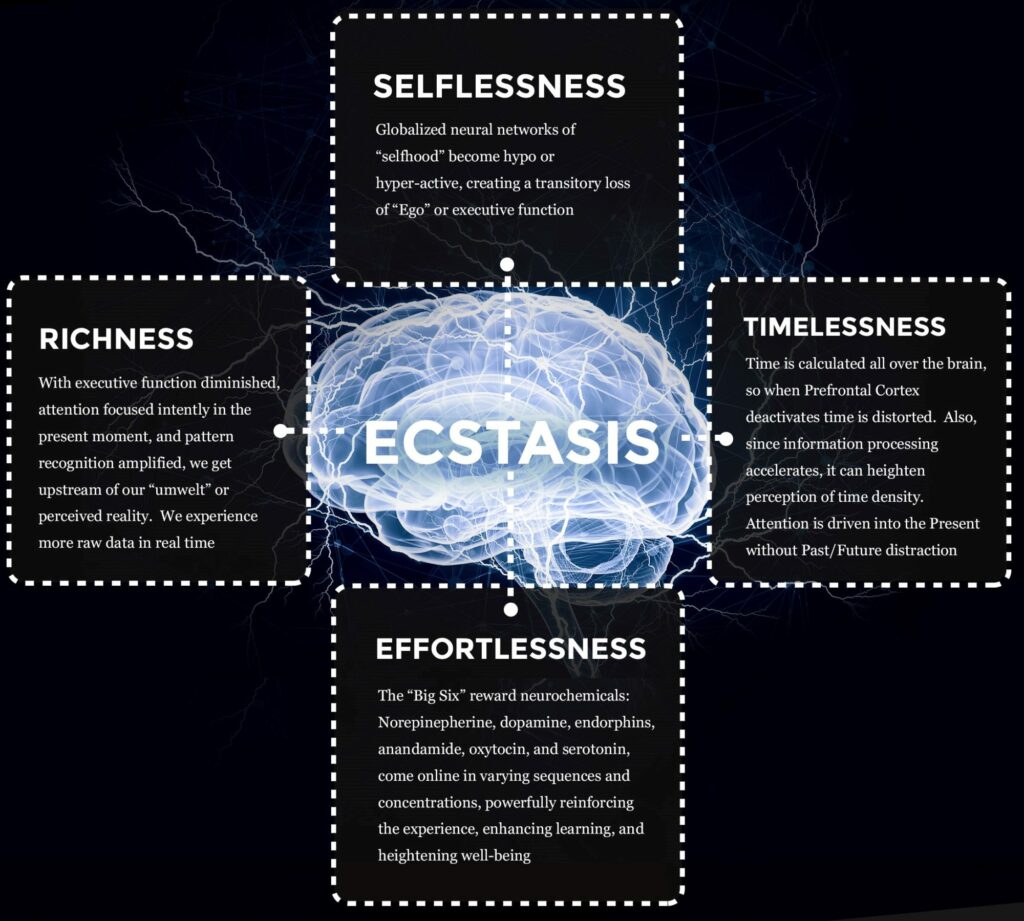
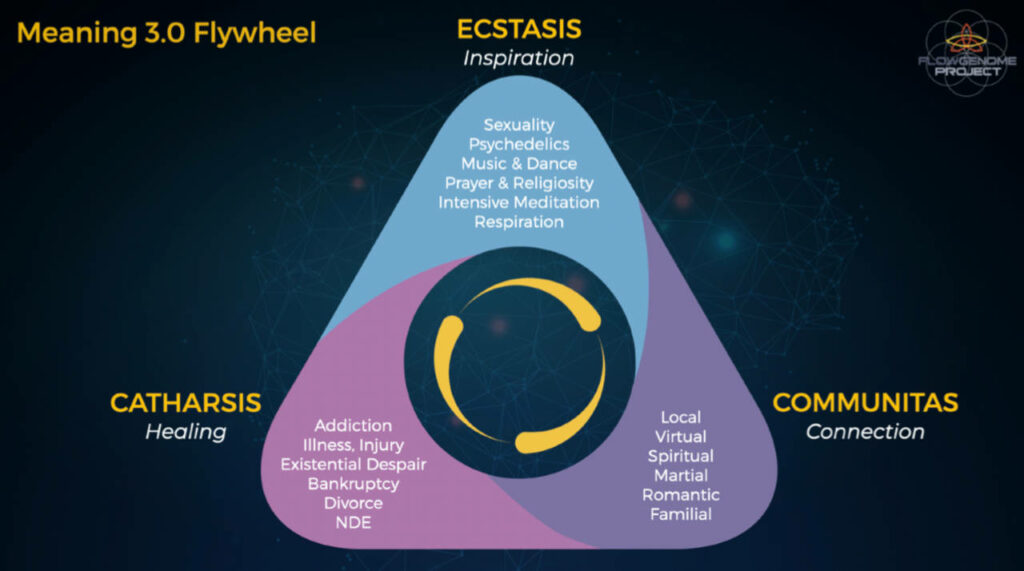
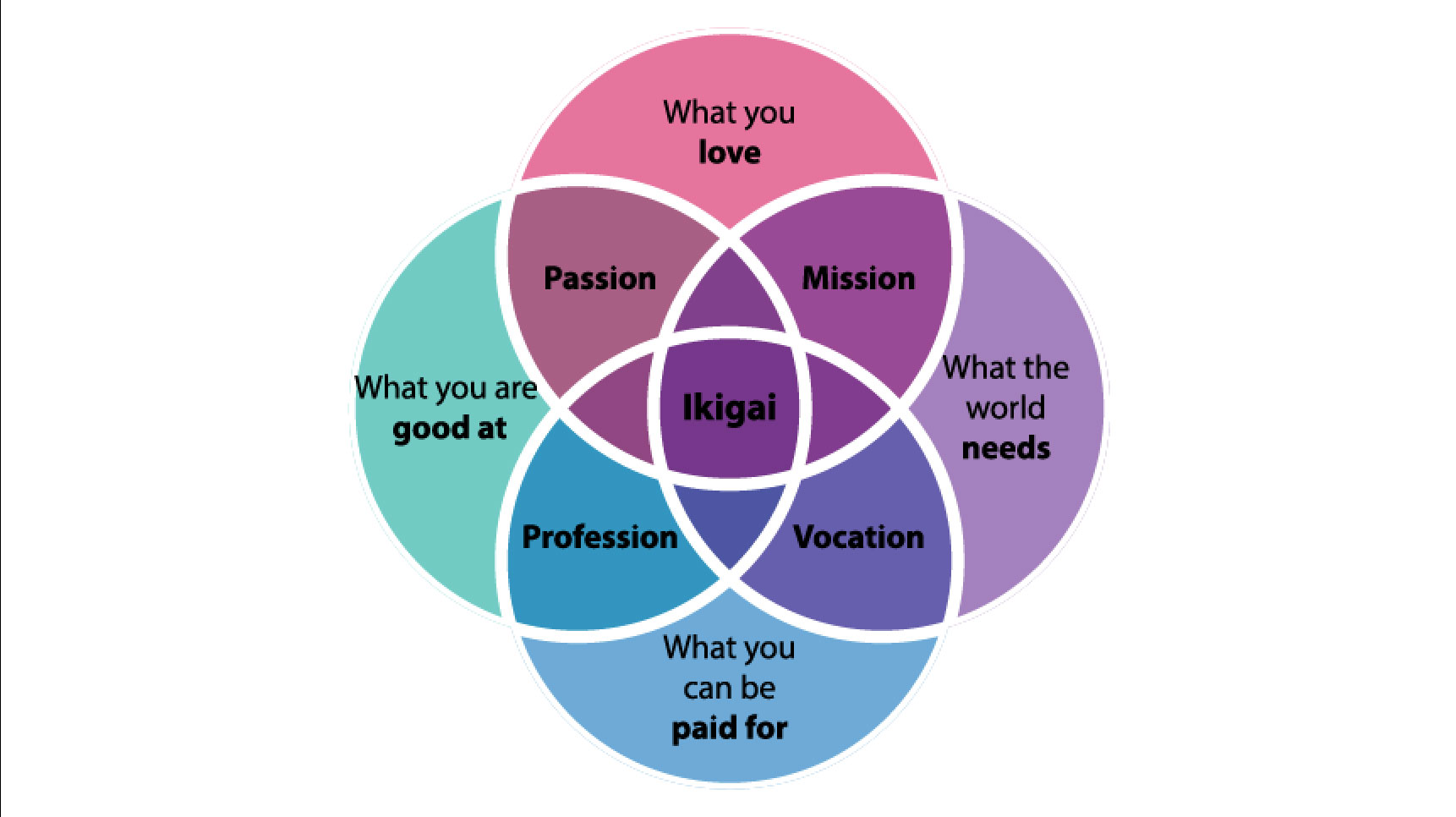
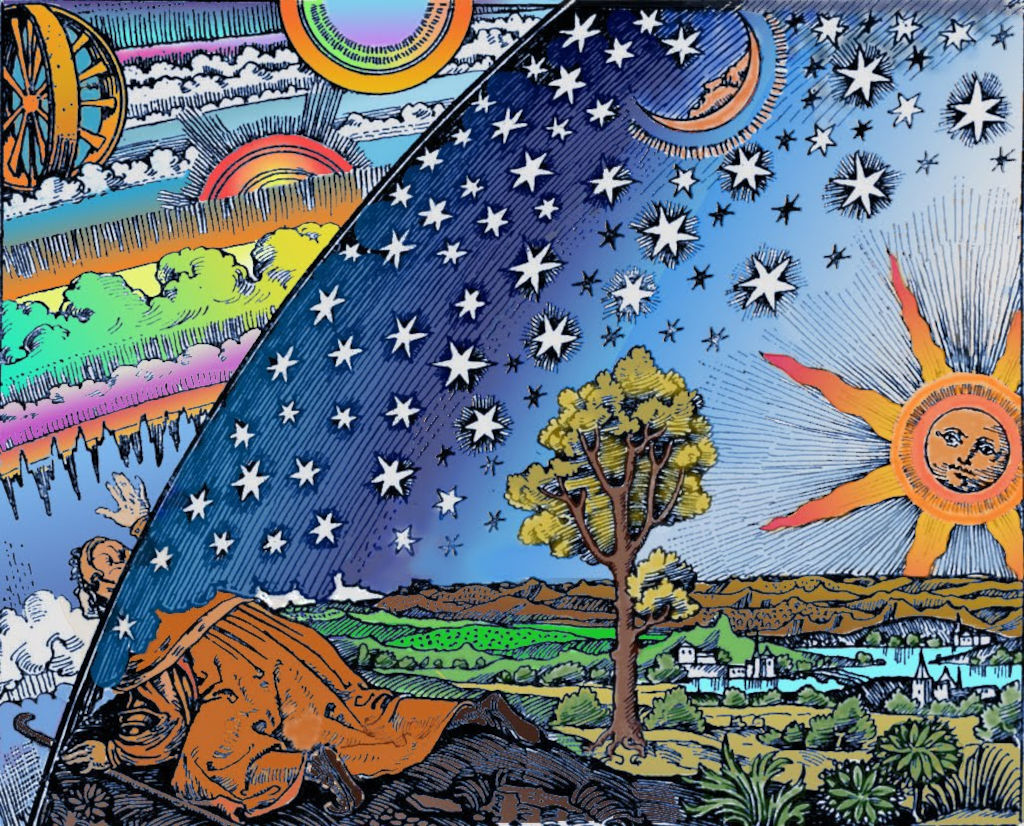
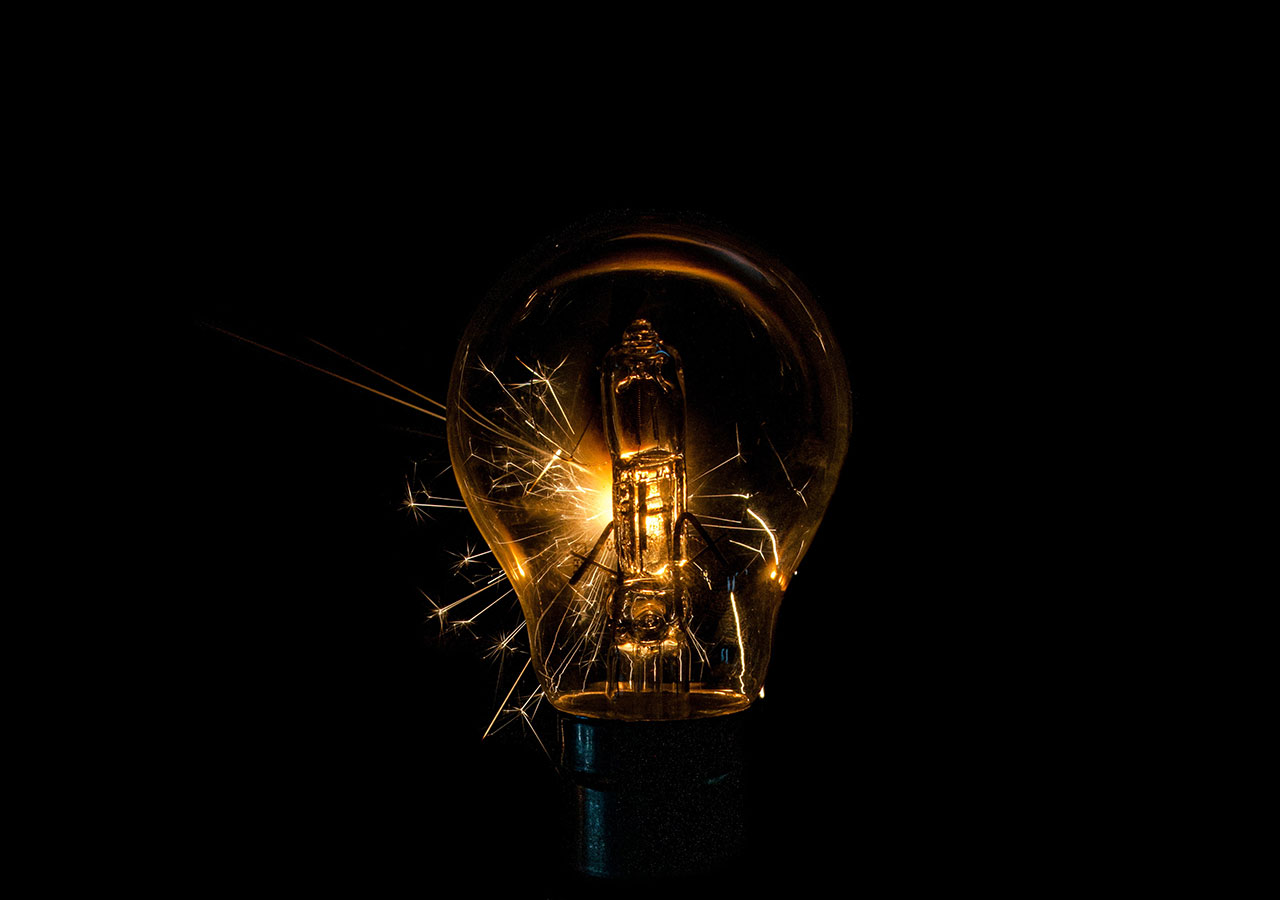
i have always liked the posts you post on my email.
but you should also concentrate on human behaviour since it is the key to a changing mindset, i hve young ones i always be with and its hard bto give them these lectures about psycology because they hardly understand them, thanks help me to change the mind set to reach the peak